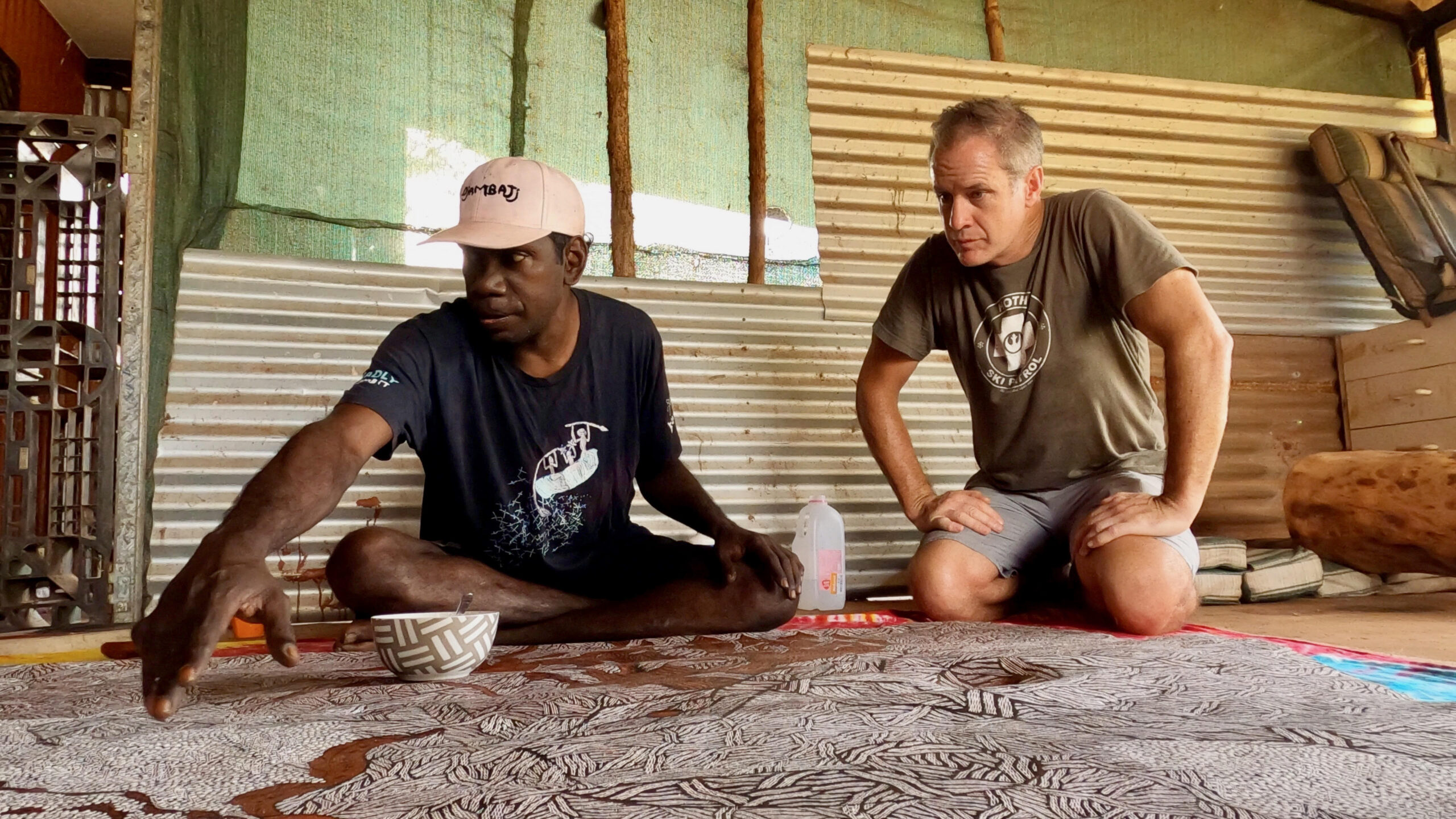Ian Grant has spent the last 30 years building a career at the intersection of art and culture, a path that he embarked on after graduating from Gustavus Adolphus College with degrees in art history and history and a minor in peace studies in 1991.
This fall, his work will be featured in a new PBS program called Culture Quest. Premiering on TPT Life in the Twin Cities on Friday, October 8 at 7:30 p.m., season one takes Grant to Western Mongolia, Ghana, Japan, Puerto Rico, East Timor, and Northern Australia. Where travel documentarians Anthony Bourdain and Andrew Zimmern explored the world through the lens of food, Grant shares life through the eyes of the world’s artists, artisans, and keepers of culture. This is the second television show for Grant, who won a Daytime Emmy Award in 2010 for his work on The Relic Hunter with Ian Grant, which aired on the Travel Channel.
“So many people think about art and culture as sort of a static thing, something you see in a museum or read about in a book,” Grant said. “A big part of what I’m going after here is showing people that culture is made of real people living real lives. I like being able to bring that day-to-day-reality of life around the world in a way that’s understandable and relatable no matter where you’re from.”

Growing up in Duluth, Minnesota as the child of immigrants to the United States, Grant often traveled back to his parents’ home countries of Ireland and Scotland in addition to other trips to various locales. His love of culture came to life even more in the classroom at Gustavus, where professors like Linnea Wren (art and art history) and Kevin Byrne (history) helped ignite his passion for lifelong learning.
Grant took the opportunity to give back to the next generation of Gustavus students during the production of Culture Quest. In the fall of 2019, he met with political science and art history classes before leaving to film the pilot in Mongolia. As he traveled the world and shot each episode, Grant uploaded videos, photographs, and written reflections that the students could access, read, and respond to online. He also set up Zoom interviews to allow students to interact directly with the artists and cultural leaders he was working with on location. After each trip, he returned to campus to discuss his travels with Gustie students.
“There was a distinct advantage in being able to process my experiences by talking to students,” Grant said. “I got to share in the students’ reactions, which helped me shape the look and feel of each episode.”
“One of the goals of liberal arts learning is to get students to think about the experiences of different cultures,” said Raymond and Florence Sponberg Professor of Ethics Dr. Mimi Gerstbauer, who taught one of the courses that collaborated with Grant. “There’s a strong benefit to experiential education, and Ian helped give us direct access to life in several developing nations.”
One of the most impactful connections for students was the opportunity to talk directly with Naldo, a freedom fighter from East Timor. “Learning about East Timor was such an incredible experience. Ian visited a women’s graffiti collective that used art to discuss the politics of women’s rights. One student who had been pretty quiet throughout the semester just lit up,” Gerstbauer recalled.
Students also grappled with the idea of what it means to be an ethical filmmaker documenting life in developing countries, asking Grant about how he actively worked to support the artists he captured on film.
“We had rich conversations about ethics, responsibility, and engagement,” Gerstbauer said.
“The ongoing dialogue with the students was incredibly valuable,” Grant agreed, noting that his small and nimble team—just Grant and a cameraman—allowed him to build authentic and lasting connections with the people he interacted with throughout the filming process.
“I was trained in art and history, but meeting with political science students was a natural fit,” Grant said. “So many of our episodes revolve around modern art and the experiences of contemporary artists. Modern art, of course, is about how people process and respond to politics, justice, and culture.”
Culture Quest premieres in the Twin Cities market on TPT Life on Friday, October 8 at 7:30 p.m. and will be available on PBS stations across the country throughout the fall. Check your local listings for broadcast channels and times.

Leave a Reply
You must be logged in to post a comment.